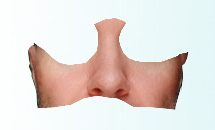Yeah, you can say I avoid certain type of food. Like 99% of food. But I don’t do it to fix my guts (although there is evidence ketogenic diets do that) https://ketologic.com/article/keto-diet-gut-health/
I’m following my version of the ketogenic diet with assorted tricks to fix the epigenome: that is, to activate sirtuin proteins that regulate the epigenome and the de-methylase enzyme.
I have anecdotal evidence it’s working. I had lots of large freckles covering my face after a bad sunburn 30 years ago. I read those are caused by epigenetic changes and my dermatologist told me they were permanent and no medicine or laser surgery could remove them (aside from cutting holes in my face).
The diet and associated tricks have removed 70% of them so far and it’s continually but slowly improving. That implies repair to the epigenome of those cells responsible for the freckles. Remember, when a cell reproduces, not only a copy of its DNA goes to the new cell, but a copy of its epigenome, hence the pernicious “permanency” of our disease (if we take for granted it’s epigenetic in nature). It’s only permanent IMHO if the epigenome is not fixed, spontaneously or on purpose.
Also almost all my pfs symptoms are gone. Sex is normal, brain is normal, motivation, joy of living, self-confidence etc… are all normal. My only remaining symptom is insomnia but with meds and herbs it’s under control. I sleep around 8 hours a day. Burning eyes and dry burning lips have gone away in the last 3 months.
I’m not willing to try, but I think if I stopped the diet, meds and herbs I would get back many pfs symptoms but they would not be as severe as after I crashed. I have no way of proving this as I won’t stop diet, meds and herbs.
Specifics:
Ketogenic diet is 70% of calories from fat, 26% from protein, 4% from carbs.
It is not a calorie restricted diet, you get all your calories (although calorie restriction and fasts are one of the tricks that produces sirtuins)
My version of the ketogenic diet is to make it an almost exclusively carnivore diet on top of having all the ketogenic attributes described above.
70% of calories are from animal fat, the great majority of which is Ghee.
26% of calories are from protein the great majority of which is beef, egg and mackerel (with high content of Omega 3 and GABA)
4% of calories are from carbs, that’s less than 20gr coming from 2 tbsp of diluted cooked lentil puree,1 tbsp each of rolled oat and oat bran I take before sleep to lower cortisol, raise insulin and sleep better and a little bit of spinach (for taste I guess. No specific reasons to eat them).
Those 20 gr of carbs removes any carbs craving I would otherwise have.
Water is the only drink but minerals can be mixed in it (see below)
A typical day, 80% of the days:
Morning I take a bulletproof coffee with 2-3 tbsp of ghee, some coconut milk and zero carbs sweetener.
I may drink water in the afternoon.
I wait until 5 pm to eat 2 tbsp of lentil puree whipped with 5-7 tbsp of ghee, and egg, some low sodium salt (high potassium) and some lemon juice/ citric acid. It’s like a Bearnaise sauce in which I add 140 gr of beef (any kind, usually fat ground beef) and 100 gr of steamed spinach. Drink: a glass of 0.5 gr magnesium chloride, 0.25 gr potassium chloride, apple vinegar and sparkling water.
No more liquids after 6 pm. If I get up to pee during the night, the night is over and the next day is ruined.
Before sleep, 1 tbsp of rolled oat, 1 tbsp of oat bran, 1 tbsp of ghee, 1 tsp of inusitol (vitamin B8), 2 1/3 tbsp of water. Microwave the mix 30 seconds, let it coold down, eat it right before sleep but at least 30 to 90 minutes after taking sleeping pills and herbs. Brush my teeth (carbs causes cavities right ?) and it usually knocks me out better than the meds and herbs. I’ll sleep 5-10 minutes after closing my eyes, usually while trying to meditate. I have 8 hours sleep.
And that’s it. One real meal a day, fat in the morning and a little carbs at night.



